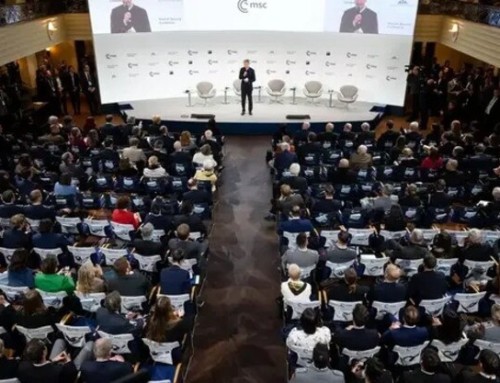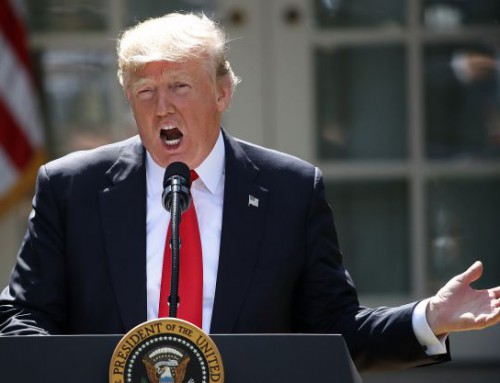A country is at great risk when the irrational overtakes and becomes the surrogate for the rational. And a country is at graver risk when the public succumbs to a willing suspension of disbelief in this free fall descent into irrationality. Yet, this could be the state of American politics and governance today—a condition that eludes adequate description by the English language and the current vocabulary.
Regarding the presidential campaigns, some argue that the anger and resentment of many Americans towards the failures of government have created the means for irrationality to reign. One of the candidates has concluded that the “stupidity” of government is the root cause of this national malaise and deep seeded public fury. This assertion of stupidity is made seemingly reasonable by the absurdity of other statements and intentions of what this candidate would do as president. Employing more than “water boarding” in fighting our enemies, walling off Mexico and creating millions of jobs merely by waving what passes for his magic wand for example are simply preposterous promises.
Tragically, of the five remaining candidates in that race, two are delusional, one is staggeringly ignorant, one is dependent on family ties to save him and only one seems to have the right balance of character and experience to be president. Yet, barring a miracle, a brokered convention or another entry, the best qualified candidate so far is unlikely to win nomination.
The other side has so far run a more conventional race. Except, a democratic socialist whose proposals may capture the anger of many Americans while ignoring reality is surely unelectable. And his opponent is so much a part of the hated establishment that even if not crippled by allegations of mishandling government e-mails, she likewise may be unelectable.
While exact parallels do not exist, if this irrationality persists, the 21st century equivalent of a Barry Goldwater facing a George McGovern (both were soundly trashed—-by LBJ in 1964 and Richard Nixon in 1972) could define the 2016 election. Fortunately, it is not out of the question that given the prospect of one unelectable candidate running against another unelectable one, as nature abhors a vacuum, so too politics will intervene. If this happens, rationality (or sanity) would sweep away the collective madness embraced by those who support the current leading contenders.
In blunt terms, if Donald Trump continues to be headed for the Republican nomination, the party can never let that stand. And if Senator Bernie Sanders appears headed for the top of the ticket, that too may not last. At this stage however, and last Saturday’s primaries in Nevada and South Carolina withstanding, one cannot be bullish about the next four years. Added to pressing domestic issues, the array of international crises and clearly the decline of American influence, leadership and authority abroad and an economy that has caught the flu or worse, a Trump versus Sanders race would be as catastrophic as it is delusional. Sadly, the righting balance of Congress has long been missing in action.
The death of Supreme Court Associate Justice Antonin Scalia predictably triggered another bout of irrational politics. Republicans, led by Senate Majority Leader Mitch McConnell promptly rejected consideration of any nominee proposed by President Barack Obama as a replacement. The argument that Obama was a “lame duck” and hence should defer to his successor was as nonsensical as it was irrational.
By that metric, Obama might as well resign and defer everything to the next president. Now if politics today were rational, would the Republicans not have been better off saying that the president proposes and in this case the Senate disposes? Should Obama send a nominee to the Senate who is seen as widely qualified, by refusing to consider in advance any candidate, Republicans would surely harm their electoral chances in November. And if the candidate had bipartisan support, why not confirm that individual?
It is often hard to separate stupidity from irrationality. In addition to character and experience, competence, objectivity and rationality are needed in the candidates seeking the presidency—and in large quantities. The further tragedy is that America’s political system may be so broken that not even the most stunning crisis will force repair.
______________________________
Harlan Ullman is UPI’s Arnaud de Borchgrave Distinguished Columnist; Chairman of the Killowen Group that advises leaders of government and business and Senior Advisor at Washington DC’s Atlantic Council and Business Executives for National Security (BENS). His latest book is A Handful of Bullets: How the Murder of Archduke Franz Ferdinand Still Menaces the Peace.






Leave A Comment